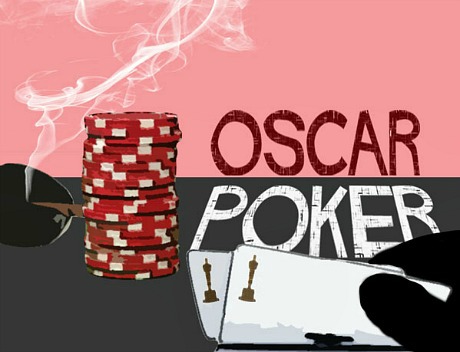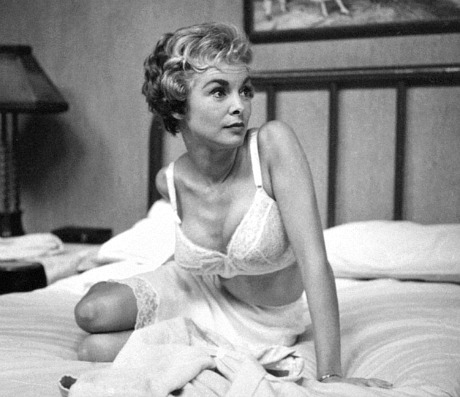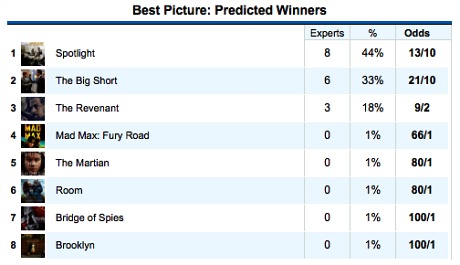Spotlight beat The Big Short at the SAG awards tonight, taking the equivalent of SAG’s Best Picture award (Best Outstanding Cast, Best Ensemble, whatever) and rejuvenating the Best Picture race once again. It just might be Spotlight after all….hey-hey! I’m sure it was a close vote, but it’s a rebound nonetheless for Tom McCarthy‘s brilliant journalism drama, which, don’t forget, had been the presumptive Best Picture fave for most of the fall. The race ain’t over, of course, but Spotlight lives again. Surges, it’s fair to say.
I’m sure that when and if McCarthy doesn’t win next weekend’s DGA award (nobody has been predicting that he will — they’ve all been saying George Miller or Alejando G. Inarritu), the anti-Spotlight gang will seize upon this as an indication that “it ain’t over ’til it’s over.” Or even a counter-surge.
Sasha Stone, Glenn Whipp and all the other Big Short boosters/cheerleaders can…I was going to say they can kiss Hollywood Elsewhere’s ass but there’s no need for that kind of talk. We’re all friends, all in the same racket, all on the same side of the fence. But I was feeling very, very concerned about the possibility of The Big Short winning the big SAG award, which, had it happened, would have resulted in a steamroller psychology and an all-but-certain Best Picture win, and I’m sorry but the idea of a Big Short win was bumming me out. So I basically howled and whoo-whooed when I read the news.
I really admire The Big Short, seriously, but it doesn’t have that Best Picture schwing. And yet before I heard the news I was starting to resign myself to the idea of Adam McKay‘s film being the toast of the town. It didn’t feel right in the gut, a Big Short win, but I was starting to tell myself “be a man, accept reality, be gracious,” etc. Now I don’t have to do that. Now I can make barking seal sounds and clap my flippers. Yes, I’m being a bad winner — I know that. But I’m just saying what others are probably saying to each other in private.
It’s also a wonderful thing that Idris Elba won the Best Supporting Actor SAG award — the right guy won! Did SAG members casts their vote after the Oscar nominations and the OscarsSoWhite complaint began? If so, did Elba get a boost from that? Yeah, probably, and so what? He’s a superb actor, he totally nailed his warlord role in Cary Fukunaga‘s grand masterpiece, and it felt awfully damn good when he won.





